ORGANIZERS |
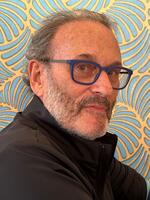
Jeffrey Alexander is the Lillian Chavenson Saden Professor of Sociology at Yale University, founder and co-director of Yale’s Center for Cultural Sociology, and co-editor of The American Journal of Cultural Sociology. A social theorist whose early work challenged the anti-cultural reductionism of classical and modern sociology, Alexander has worked with generations of students and colleagues to create a “strong program” in cultural sociology. Synthesizing late Durkheim with semiotics, poststructuralism, and cultural anthropology, he has conceptualized, not only models of deep cultural structure, but theories of cultural trauma, social performance, and material iconicity. Alexander has also developed “civil sphere theory,” a macro-sociological model of democracy and the forces that can undermine it. He is currently organizing a series of conference/edited book projects: The Civil Sphere in Latin America (Cambridge University Press, 2018), The Civil Sphere in East Asia (CUP, 2019), Breaching the Civil Order: Radicalism and the Civil Sphere (CUP, 2018), and The Nordic Civil Sphere (Polity, 2019). The Civil Sphere and Populism (Polity, 2020), The Canadian Civil Sphere (UBC Press, forthcoming), and The Civil Sphere in India (Polity, forthcoming). His most recent book is What Makes a Social Crisis: The Societalization of Social Problems (Polity, 2020). Press. His most recent article is “Office Obligation as Civil Virtue: The Crisis of American Democracy, November 3, 2020 - January 6, 2021, and After” (Society, 2023). |

Paul Lichterman is Professor of Sociology and Religion at the University of Southern California. Paul’s work has explored civic action in social movements of many sorts, religious volunteer groups and nonprofit organizations. A pragmatist focus on action and a nuanced regard for structured symbolic forms animate these studies, leading to distinctive positions in debates over individualism, identity politics, and the roles of religion in public life. Paul authored The Search for Political Community and Elusive Togetherness: Church Groups Trying to Bridge America’s Divisions. His recent book, How Civic Action Works: Fighting for Housing in Los Angeles (Princeton, 2021), synthesizes a new framework for studying the core civic tasks of collective action—crafting claims and building relationships. Paul has published in American Journal of Sociology, American Sociological Review, and Sociological Theory among other journals, and won a variety of book and article awards including three “best article” awards from the ASA culture section. Paul has enjoyed research fellowships and visiting positions at Université de Paris VIII, Universität Erfurt and the Forschungskolleg Humanwissenschaften, an institute for advanced studies of the Goethe University, Frankfurt am Main. Currently Paul is studying the morality and politics of anti-racism in the U.S., especially among white people, in activist and workplace sites. This project is supported by an Alexander von Humboldt Foundation Research Award. |
AUTHORS |
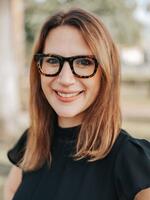
Valentina Cantori is a PhD Candidate in the Department of Sociology at the University of Southern California. Her dissertation titled “Imagining Inclusion: How Muslim Advocates Craft Public Images in U.S. Civic Life” explores how American Muslim advocates produce inclusive images of Islam and Muslims that advocates hope would circulate among larger publics to counter the tarnished representations of their group prevalent in mainstream culture. Advocates attempt to do so while navigating the minefield of multiple exclusions to which Muslims are subject today in the U.S., being both ostracized from civic life and discriminated on religious, racial, and ethnic grounds. This context of multiple oppressions generates tensions and tradeoffs for advocates as the images they produce might inadvertently take up distorting features of an implicitly exclusionary U.S. civic culture. Valentina’s previous research has been published in Sociology of Religion: A Quarterly Review and the Journal of Muslim Minority Affairs and has won multiple awards. She is also the writer and producer of a documentary titled “So They May Know One Another: Muslims and Evangelicals Bridging American Divisions.” The documentary is part of Valentina’s broader effort to translate sociological knowledge for wider audiences. |
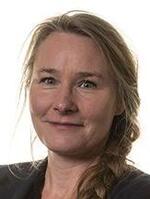 Liv Egholm, Ph.D., is an associate professor and director of the Center for Civil Society Research at Copenhagen Business School, Department of Management, Politics & Philosophy (DK). Her scholarship is centered on how concepts, practices, and temporalities impact cultural and social organizing. She is especially interested in the way we conceptualize “the common good” and its implications for how we address and solve the (grand) challenges of our day by organizing the present and diagnosing the future. Her research contributes to contemporary discussions of: civil society, “the common good,” philanthropic gift-giving practices, and temporalities, as well as more theoretical and methodological discussions rooted in a relational-processual approach inspired by cultural sociology, pragmatism, and semiotics. In her current research, she is investigating how the negotiations of “The Common Good” are translated into civil action and civil organizing over time. Particularly, the research sheds lights on the social inclusion/exclusion mechanisms involved in the process, and its consequences for future social actions. Among my recent publications are: A processual-relational approach to civil society (Routledge, 2021), Five progressive responses to the grand challenges of the 21st century (Thesis Eleven, 2021), Complicated translations (Polity Press, 2020), Advancing a post-sectoral conception of civil society-moving beyond Civil Society? (IJPCS, 2020), Practicing the common good: Philanthropic practices in 20th-century Denmark (IJPCS,2020), Matters of Translations (Cambridge Press, 2019), Civil Society Organizations: The Site of Legitimizing the Common Good (Voluntas, 2019) Liv Egholm, Ph.D., is an associate professor and director of the Center for Civil Society Research at Copenhagen Business School, Department of Management, Politics & Philosophy (DK). Her scholarship is centered on how concepts, practices, and temporalities impact cultural and social organizing. She is especially interested in the way we conceptualize “the common good” and its implications for how we address and solve the (grand) challenges of our day by organizing the present and diagnosing the future. Her research contributes to contemporary discussions of: civil society, “the common good,” philanthropic gift-giving practices, and temporalities, as well as more theoretical and methodological discussions rooted in a relational-processual approach inspired by cultural sociology, pragmatism, and semiotics. In her current research, she is investigating how the negotiations of “The Common Good” are translated into civil action and civil organizing over time. Particularly, the research sheds lights on the social inclusion/exclusion mechanisms involved in the process, and its consequences for future social actions. Among my recent publications are: A processual-relational approach to civil society (Routledge, 2021), Five progressive responses to the grand challenges of the 21st century (Thesis Eleven, 2021), Complicated translations (Polity Press, 2020), Advancing a post-sectoral conception of civil society-moving beyond Civil Society? (IJPCS, 2020), Practicing the common good: Philanthropic practices in 20th-century Denmark (IJPCS,2020), Matters of Translations (Cambridge Press, 2019), Civil Society Organizations: The Site of Legitimizing the Common Good (Voluntas, 2019) |
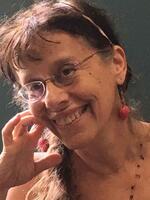
Nina Eliasoph, University of Southern California, Dornsife. I am interested in civic and political organizations in a diverse society, ranging from grassroots civic associations and activist groups, to nonprofits and NGOs. While being sure to analyze the “big” picture from all sorts of methodological approaches, I am especially interested in interpretive approaches that take the structures of ambiguity into account. For articles, see my website. My first book, Avoiding Politics: How Americans Produce Apathy in Everyday Life, and the articles that came from it, describe how participants of various small civic groups talked–or did not talk–about politics, both within their groups and in their encounters with government, media and corporate authorities. Making Volunteers: Civic Life After Welfare’s End, and the articles that draw on it, portray and theorize a newly prevalent kind of organizational form that aims to cultivate the grassroots from the top down: I call them “empowerment projects.” These nonprofits and NGOs have paid staffs and have to justify their existences, to many funders, with many missions: to promote civic engagement, to cultivate deep appreciation of unique cultures, to get diverse people to mix and get out of their “comfort zones,” to help raise up disadvantaged people, and more. The missions look nice on paper, but often don’t match in everyday practice, especially when all require constant assesment. The Politics of Volunteering, compares volunteering and political activism, and aims to put these kinds of organizations in a broader historical and comparative perspective. I’ve also taught and lectured abroad, and enjoy collaborating on cross-national ethnographic projects. Recently, I helped launch a new major, NGOs and Social Change. My sociological subfields include: political sociology andcommunication, cultural sociology, ethnography, sociolinguistics, social theory, emotions, organizations, and nonprofits/NGOs. |
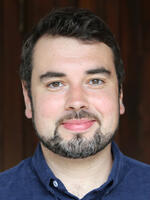
Zachary Hyde, University of Toronto. I am an urban geographer and sociologist who studies city governance, housing and development. Across my research projects, I look at how the dynamics of capitalism play out on the ground through political struggles over the built environment, the meanings and ideas of social actors, and the histories and institutions of cities. |
 Mervyn Horgan is Associate Professor of Sociology & Anthropology at the University of Guelph, where he leads the Sociable Cities Project and the Rental Experience Project (both funded by SSHRC). He is Co-Investigator on the Improvising Futures project, where he heads up the ‘Improvisation, Public Spaces, and the Practice of Everyday Life’ research stream. His primary concerns are with the lived experience of public space and solidarity in everyday life. Conceptually, he works to bring cultural sociology together with work on everyday life, with a view to developing a cultural sociology of the interaction order. He has published widely on social theory, interaction, and urban and cultural sociology. He is co-editor (with Saara Liinamaa) of a special issue of Urban Planning (forthcoming) on conflict, conviviviality and improvisation in public space, and co-editor (with Jeffrey Alexander) of the forthcoming edited collection The Civil Sphere in Canada. He has been a CCS Faculty Fellow since 2019. Mervyn Horgan is Associate Professor of Sociology & Anthropology at the University of Guelph, where he leads the Sociable Cities Project and the Rental Experience Project (both funded by SSHRC). He is Co-Investigator on the Improvising Futures project, where he heads up the ‘Improvisation, Public Spaces, and the Practice of Everyday Life’ research stream. His primary concerns are with the lived experience of public space and solidarity in everyday life. Conceptually, he works to bring cultural sociology together with work on everyday life, with a view to developing a cultural sociology of the interaction order. He has published widely on social theory, interaction, and urban and cultural sociology. He is co-editor (with Saara Liinamaa) of a special issue of Urban Planning (forthcoming) on conflict, conviviviality and improvisation in public space, and co-editor (with Jeffrey Alexander) of the forthcoming edited collection The Civil Sphere in Canada. He has been a CCS Faculty Fellow since 2019. |
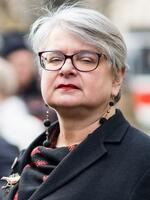
Bernadette Nadya Jaworsky is a Professor of Sociology at Masaryk University, Brno, Czechia, and Faculty Fellow at Yale University’s Center for Cultural Sociology. Recent books include Historicizing Roma in Central Europe: Between Critical Whiteness and Epistemic Injustice (with Victoria Shmidt, Routledge 2021), and A Critical Cultural Sociological Exploration of Attitudes toward Migration in Czechia: What Lies Beneath the Fear of the Thirteenth Migrant (with Radka Klvaňová, Ivana Rapoš Božič, Alica Rétiová, and Jan Kotýnek Krotký, Lexington Books, 2023). She has published recently in American Journal of Cultural Sociology, Migration Studies, Visual Studies, and the Journal of Nationalism, Memory & Language Politics. Her current research focuses on developing a critical cultural sociology of migration. |
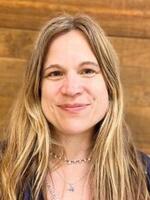
Saara Liinamaa is an Associate Professor in the Department of Sociology and Anthropology, University of Guelph (ON, Canada). As a cultural sociologist and theorist, her research combines interests in culture, creativity, and everyday life with published work on sociability in/and public space, migrant rights in Canada, cultural theory, and creative work and occupations. Liinamaa is a contributor to the forthcoming book, The Civil Sphere in Canada (Eds. Alexander and Horgan) and her recent book, The New Spirit of Creativity (University of Toronto Press), was awarded the 2023 Canadian Sociology Book Award. |
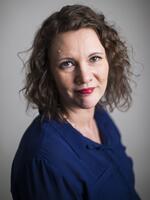
Eeva Luhtakallio is Professor of Sociology at the University of Helsinki. She specializes in political sociology, social theory, and sociological methods. Her work focuses on democracy and citizenship as culturally patterned practices, including studies on activism, young people’s political engagements and visual politicization. Luhtakallio leads the Centre for Sociology of Democracy (csd.fi). Her recent publications include e.g. “Fame democracy? Social media and visuality-based transformation of the public sphere” (with Taina Meriluoto, Distinktion: Journal of Social Theory, 2023) and “Justifications Analysis” (with Tuomas Ylä-Anttila, Handbook of Economics and Sociology of Conventions, 2023). |
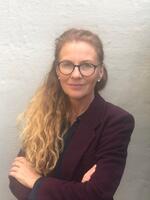 Anna Lund is a Professor of Sociology at Stockholm University. Cultural sociological perspectives and ethnographic methods characterize her research, as well as a theoretical concern with social change and cultural transformation under conditions of adversity. Her current research interest is connected to how modes of incorporation is performed in school settings among and for migrant students as well as in Swedish children’s theater. She employs civil sphere theory, with intersectional perspectives, at the microlevel by investigating interactional and organizational processes in school and theater contexts. Her work has appeared in journals such as the American Journal of Cultural Sociology, Ethnography, and Poetics. She is a coeditor with Jeffrey C. Alexander and Andrea Voyer of The Nordic Civil Sphere (Polity Press 2019). Anna Lund is a Professor of Sociology at Stockholm University. Cultural sociological perspectives and ethnographic methods characterize her research, as well as a theoretical concern with social change and cultural transformation under conditions of adversity. Her current research interest is connected to how modes of incorporation is performed in school settings among and for migrant students as well as in Swedish children’s theater. She employs civil sphere theory, with intersectional perspectives, at the microlevel by investigating interactional and organizational processes in school and theater contexts. Her work has appeared in journals such as the American Journal of Cultural Sociology, Ethnography, and Poetics. She is a coeditor with Jeffrey C. Alexander and Andrea Voyer of The Nordic Civil Sphere (Polity Press 2019). |

Rich Wood is president of the Institute for Advanced Catholic Studies at the University of Southern California in Los Angeles (and currently on leave as Professor of Sociology at the University of New Mexico). He is the author or co-author of several dozen scholarly articles and book chapters on social movements, the sociology of religion, political sociology, and democratic theory, many of them focusing on faith-based/broad-based community organizing efforts as case studies or for quantitative data analysis. He is the author of Faith in Action: Religion, race, and democratic organizing in America (University of Chicago Press, 2002) and co-author (with Brad Fulton) of A Shared Future: Faith-Based Organizing for Racial Equity and Ethical Democracy (University of Chicago Press, 2015; named best book of 2015 by Association for Research on Non-Profits and Voluntary Action). He serves as co-editor of the book series Cambridge Studies in Social Theory, Religion, and Politics at Cambridge University Press, and previously served as faculty president, senior vice provost, and interim provost at UNM. |
COMMENTATOR |
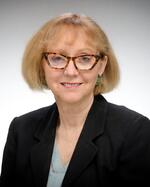
Lynette Spillman’s research and teaching interests are grounded in cultural sociology and extend to economic sociology, social theory, comparative historical sociology, qualitative methods, and political sociology. Her work examines cultural influences in social processes: how meaning-making varies, how meanings influence human action, and how meaning-making affects social cohesion and conflict. She is especially interested in understanding economic and political culture in long-term historical processes. She teaches classes in cultural sociology, economic sociology, qualitative methods, social theory, and political sociology, and she has been a member of over seventy committees supporting students’ thesis research. Her work for cultural sociology includes What is Cultural Sociology (Polity, 2020), Cultural Sociology (editor) (Blackwell, 2002), and articles, encyclopedia entries, and special issues on cultural theory, interest-oriented action, mixed methods, and causal logic. Her work on economic culture includes Solidarity in Strategy: Making Business Meaningful in American Trade Associations (University of Chicago Press, 2012), winner of the Viviana Zelizer Award for Best Book in Economic Sociology, and the Mary Douglas Prize for Best Book in Cultural Sociology. She has also published articles, chapters, and encyclopedia entries on business associations, culture in economic life, economic culture in the public sphere, and professions. Her work on political culture includes Nation and Commemoration: Creating National Identities in the United States and Australia (Cambridge University Press, 1997), as well as articles and chapters on nations, nationalism, collective memory, and constitutional conventions. Recipient of a Guggenheim Fellowship and an ASA/NSF Fund for the Advancement of the Discipline Award, she has served as Chair and as Secretary-Treasurer of the ASA Section on Cultural Sociology, and on the Executive and Nominations Committees of the Social Science History Association. She has also held numerous other offices in the ASA sections for Theory, Comparative-Historical Socioloy, Economic Sociology, and Political Sociology, and Altruism. A current or former member of the editorial boards of American Journal of Cultural Sociology, Sociological Forum, the ASA Rose Monograph Series, and Sociological Theory, she is currently North American Editor for Cultural Sociology, and Editor-in-Chief of Oxford Bibliographies in Sociology. She is also a Faculty Fellow of the Center for Cultural Sociology, Yale University, and the Kellogg Institute for International Studies, University of Notre Dame. |
PARTICIPANT/OBSERVER |
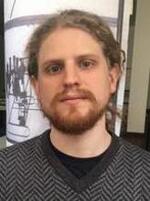 Nicolás Rudas received his B.A and M.A in Sociology from the Universidad Nacional de Colombia. He is interested in the relationship between culture, radicalism and democracy. Part of his research focuses on leftist revolutionary movements that emerged on Latin American universities during the sixties. It shows how they gradually distanced themselves from violent rhetoric and embraced a civil discourse through the use of specific symbols and narratives. He currently investigates how ’scientific icons’ (figures, diagrams, charts) shape public controversies in contexts of polarization, such as post-war Colombia. Nicolás Rudas received his B.A and M.A in Sociology from the Universidad Nacional de Colombia. He is interested in the relationship between culture, radicalism and democracy. Part of his research focuses on leftist revolutionary movements that emerged on Latin American universities during the sixties. It shows how they gradually distanced themselves from violent rhetoric and embraced a civil discourse through the use of specific symbols and narratives. He currently investigates how ’scientific icons’ (figures, diagrams, charts) shape public controversies in contexts of polarization, such as post-war Colombia. |